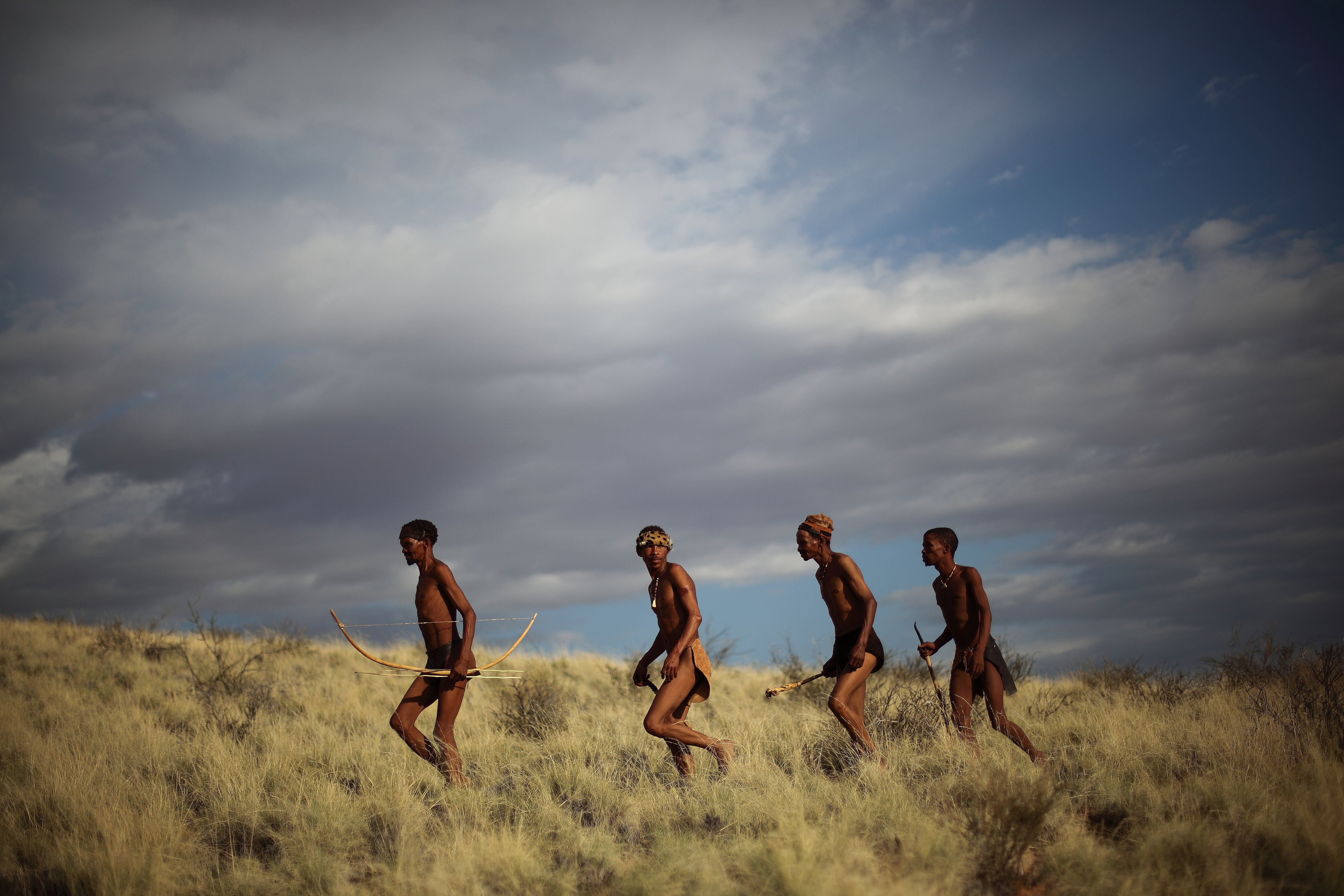Is the ‘runner’s high’ proof humans were born to run?
If the good feeling that comes from exercising is a biological reward for hunting long enough to find food, can retracing our palaeolithic past lead to a happier, healthier future? asks Sean T Smith

Homo sapiens came of age sweeping through the east African plains, foraging for food, fighting for survival and trying to hunt prey. But so-called progress stalled their momentum and reduced life to an unnatural standstill when our ancestors settled down during the agricultural revolution 12,000 years ago.
Given that we have spent just 600 generations putting down roots, and the previous 99 per cent of our history hunting and gathering, it’s not surprising that our bodies and brains remain Palaeolithic. Setting that timescale in an evolutionary context not only makes civilisation seem like a phase – and farming just a fad – but also explains why so many of our health problems stem from being so maladapted to modernity.
Evolutionary biologists have long believed that major modern killers like heart disease, osteoporosis, obesity and some types of cancer would have been lower in the palaeolithic era when rates of exercise must have been so much higher than today.
Subscribe to Independent Premium to bookmark this article
Want to bookmark your favourite articles and stories to read or reference later? Start your Independent Premium subscription today.
Join our commenting forum
Join thought-provoking conversations, follow other Independent readers and see their replies